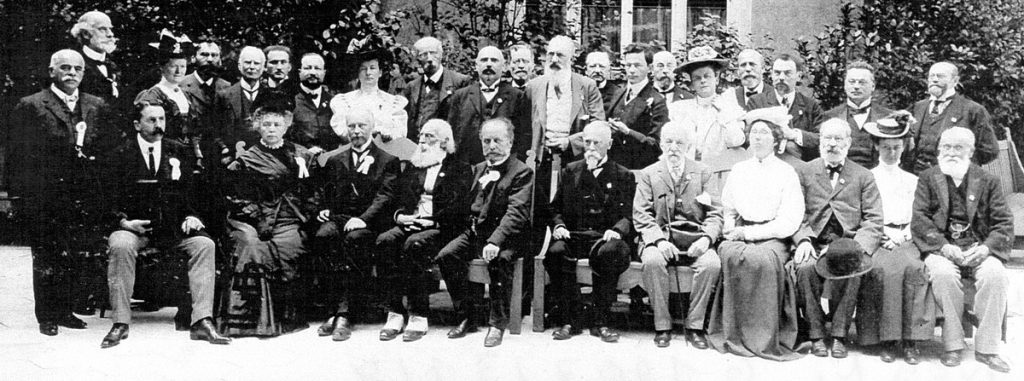- Yg. 1926, No. 52 -
The thought of Conscientious objection has gained a foothold in the German peace movement. This was also proven by the pacifist congress held in Heidelberg in October. All papers, speeches, and resolutions that supported conscientious objection have received the lively applause of the majority of congress participants. Nevertheless, of course, especially in the largest German peace organization, the German peace societywhich represents a relatively conservative pacifism, nor a strong opposition to this basic idea.
There are many arguments used by the conservative, “moderate” pacifists against the “radical” conscientious objectors. The most important thing, which by the way includes most of the others, the framework argument so to speak, is the state-political one. It rejects conscientious objection, because it sees in it the first step towards anarchy, the endangerment of the state and the state's foundation through the initiative exercised by the individual on the basis of his conscience, his convictions, and his convictions. So we experience the strange thing that people who for years and decades as political Protestants constantly oppose the official, legal, state-sanctioned doctrine of the indispensability and the will of God of the army and war with their own pacifist sentiment, which has grown out of an inner thirst for conscience, in this special one Fall, which is nothing more than the first step towards the realization of pacifism, suddenly abandon its Protestant principle in favor of the Catholic one, which denies the individual the right to self-determination about himself and his behavior towards war. Is that consistent? [...]
It is true that the individual, for the sake of the common good, must tolerate certain restrictions on his freedom of action by the laws and measures of the state; it is so false that the state is a sacrosanct nature, to assess, control, and control its conduct the individual has no right to influence. The citizen not only has the right but even the duty to control the state and its conduct. How could any development of government, legislation, administrative methods or social conditions be possible unless the members of the state exercised control and modification of this organizing and administrative machinery? One means of this control of the state is the demand for the abolition of war, another and more effective the obligation to conscientious objection.
Not that I believed that conscientious objection could end the war! It is important mainly because it reminds the state, ie those directly responsible for its behavior, of its responsibility and duty in a particularly drastic and understandable way. Because it is a warning to the statesmen to make pacifist policies, to work towards the abolition of the war. The strongest reminder that we have so far available.
I agree with many pacifists and most non-pacifists that a modern war cannot be prevented by the conscientious objection of the masses. The next war, which will be fought with poison gases and mainly by airplanes, will not require large armies; he will always find the comparatively small number of aircraft and car drivers, technicians and chemists who will be necessary to carry it out. [...]
Nevertheless, it is wrong, despite all, to reject conscientious objection as an outdated, unimportant means or even to make it contemptible. It still has its big meaning. It is a means of pressure on the rulers, a loud protest that can not be ignored. It is the consequent conclusion of the pacifist trains of thought and proclamations. It is a proof of the civil bourgeoisie, which does not dissolve into serving subservience to the immoral demands of the state and the angry frown of its drivers. And it is a moral demonstration that we demand from the pacifist, a proof of his convictions, of his consistency, a proof of the correspondence between his thinking and acting. She is the sample on the example.
So therefore: conscientious objection? Yes!
1926, 52 · Max Barth
